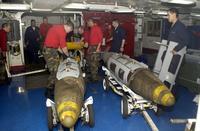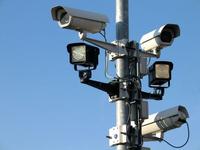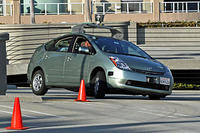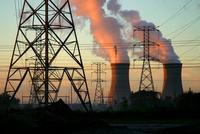-
Security agencies concerned about plastic guns
The Undetectable firearms Act of 1988, which makes it illegal to manufacture, import, sell, ship, deliver, process, transfer, or receive a firearm which is not detectable by walk-through metal detection, is set to expire on 9 December 2013. If Congress fails to reauthorize the law, plastic guns will no longer require metal components which are detectable by metal detectors. “When these 3D firearms are manufactured, some of the weapons can defeat normal detection such as metal detectors, wands, and it could present a problem to public safety in a venue such as an airport, an arena, a courthouse,” says ATF assistant director Richard Marianos.
-
-
Using biological organisms to convert natural gas to liquid transportation fuel

Researchers will use their expertise in protein expression, enzyme engineering, and high-throughput assays as part of a multiproject, $34 million effort by the Advanced Research Projects Agency-Energy (ARPA-E) aimed at developing advanced biocatalyst technologies that can convert natural gas to liquid fuel for transportation.
-
-
Drive-by charging: Advancing wireless power transfer for vehicles
Researchers have developed new technology and techniques for transmitting power wirelessly from a stationary source to a mobile receiver — moving engineers closer to their goal of creating highway “stations” that can recharge electric vehicles wirelessly as the vehicles drive by.
-
-
Rochester, Minn. wants to stop crime before it happens
The Rochester Police Departmentin Rochester, Minnesota is using IBM’s Infosphere Identity Insightto predict, and combat, crime. InfoSphere Identity Insight is used to identify frequent crime offenders, and even when multiple false identifications belonging to one individual are stored on record, the associated relationships of those identities could lead to the correct individual.
-
-
The Ergonomics of bomb-making at sea

In an effort to stem work-related injuries and speed the assembly of munitions aboard aircraft carriers, the Office of Naval Research (ONR) spearheaded the development of a more efficient and ergonomic way to build bombs at sea. The ONR-sponsored improvements will allow sailors to move around more freely and assemble multiple bombs simultaneously on smaller, individual stands.
-
-
Emulating stingray movement to build next generation of submarines
Stingrays swim through water with such ease that researchers believe that emulating the fish’s unique way of swimming could improve deep-sea vehicles’ agility and fuel efficiency. “Most fish wag their tails to swim. A stingray’s swimming is much more unique, like a flag in the wind,” says one researcher.
-
-
Insects’ way of flying inspires design of tiny flying robots
Researchers have identified some of the underlying physics that may explain how insects can so quickly recover from a stall in midflight — unlike conventional fixed wing aircraft, where a stalled state often leads to a crash landing. The analysis improves the understanding of how insects fly and informs the design of small flying robots built for intelligence gathering, surveillance, search-and-rescue, and other purposes.
-
-
Advanced police surveillance technologies pose significant privacy concerns

Much of the attention on surveillance in the media focuses on the National Security Agency (NSA), but there is not a lot of scrutiny on local domestic surveillance. In 1997, about 20 percent of police departments in the United States used some type of technological surveillance. By 2007, that number had risen to more than 70 percent of departments. Experts in criminal law and information privacy warn that the widespread use of advanced surveillance technologies such as automatic license plate readers, surveillance cameras, red light cameras, and facial recognition software by state and local police departments, combined with a lack of oversight and regulation, have the potential to develop into a form of widespread community surveillance, which ought to pose significant privacy concerns to law-abiding citizens.
-
-
U.S. Navy dominates competition for number, quality of patents
The IEEE evaluated more than 5,000 organization patent portfolios, across the seventeen industry sectors evaluated in its scorecard, for the number of patents issued as well as the growth, impact, originality, and general applicability across their respective portfolios. A laser with the potential to jam heat-seeking missiles and sniff out chemicals was one of 358 technologies patented by the U.S. Navy in 2012, helping the service dominate the government category in an annual ranking of patent portfolios published 23 October. It is an achievement the Navy has held since the scorecard added the government category in 2008.
-
-
Ann Arbor to offer residents networked, driverless cars by 2021

By 2021, Ann Arbor could become the first American city with a shared fleet of networked, driverless vehicles. This is the goal of the Mobility Transformation Center, a cross-campus University of Michigan initiative that also involves government and industry representatives.
-
-
DoD ends ambitious blimp program
The Department of Defensehas decided to end its Long Endurance Multi-Intelligence Vehicle (LEMV) project.The blimp was supposed to fly for as long as three weeks at a time, gather intelligence using 2,500 pounds worth of the most advanced cameras, sensors, and other intelligence technology. Operating at an altitude of 20,000 feet, the airship was designed to withstand enemy fire with its blend of fabrics, including kevlar. The Pentagon spent $297 million on the airship, but last month sold it back to one of the contractors which built it for $301,000.
-
-
Wireless device converts wasted energy into electric power
Using inexpensive materials configured and tuned to capture microwave signals, researchers have designed a power-harvesting device with efficiency similar to that of modern solar panels. The device wirelessly converts the microwave signal to direct current voltage capable of recharging a cell phone battery or other small electronic device.
-
-
UAV developer CyPhy Works raises $7 million to build flying robots
Danvers, Massachusetts-based CyPhy Works, a developer of advanced UAVs, the other day announced the close of a $7 million financing round led by Lux Capital, with participation from General Catalyst Partners, Felicis Ventures, and several undisclosed angel investors. As part of the financing, Lux Capital Partner Bilal Zuberi will join the CyPhy Works board of directors. The company says it targets 24/7 “persistent” operations.
-
-
“Hybrid” nuclear plants could make a dent in carbon emissions

Combining nuclear with artificial geothermal, shale oil, or hydrogen production could help slow climate change, study shows. MIT’s Charles Forsberg proposes marrying a nuclear powerplant with another energy system, which he argues could add up to much more than the sum of its parts.
-
-
Pyreos, ultra‐low power consumption IR sensor specialist, secures $4 million investment
Edinburgh, Scotland-based Pyreos Limited, a specialist in ultra‐low power consumption infrared sensor technology, the other day announced plans for international expansion after securing a further funding round of $4 million. It is possible to use Pyreos sensor arrays in many applications, among them border security, where they can identify human movement at distances of several kilometers.
-
More headlines
The long view
Are We Ready for a ‘DeepSeek for Bioweapons’?
Anthropic’s Claude 4 is a warning sign: AI that can help build bioweapons is coming, and could be widely available soon. Steven Adler writes that we need to be prepared for the consequences: “like a freely downloadable ‘DeepSeek for bioweapons,’ available across the internet, loadable to the computer of any amateur scientist who wishes to cause mass harm. With Anthropic’s Claude Opus 4 having finally triggered this level of safety risk, the clock is now ticking.”
Bookshelf: Preserving the U.S. Technological Republic
The United States since its founding has always been a technological republic, one whose place in the world has been made possible and advanced by its capacity for innovation. But our present advantage cannot be taken for granted.
Autonomous Weapon Systems: No Human-in-the-Loop Required, and Other Myths Dispelled
“The United States has a strong policy on autonomy in weapon systems that simultaneously enables their development and deployment and ensures they could be used in an effective manner, meaning the systems work as intended, with the same minimal risk of accidents or errors that all weapon systems have,” Michael Horowitz writes.
Ukraine Drone Strikes on Russian Airbase Reveal Any Country Is Vulnerable to the Same Kind of Attack
Air defense systems are built on the assumption that threats come from above and from beyond national borders. But Ukraine’s coordinated drone strike on 1 June on five airbases deep inside Russian territory exposed what happens when states are attacked from below and from within. In low-level airspace, visibility drops, responsibility fragments, and detection tools lose their edge. Drones arrive unannounced, response times lag, coordination breaks.
Shots to the Dome—Why We Can’t Model US Missile Defense on Israel’s “Iron Dome”
Starting an arms race where the costs are stacked against you at a time when debt-to-GDP is approaching an all-time high seems reckless. All in all, the idea behind Golden Dome is still quite undercooked.
Our Online World Relies on Encryption. What Happens If It Fails?
Quantum computers will make traditional data encryption techniques obsolete; BU researchers have turned to physics to come up with better defenses.
Virtual Models Paving the Way for Advanced Nuclear Reactors
Computer models predict how reactors will behave, helping operators make decisions in real time. The digital twin technology using graph-neural networks may boost nuclear reactor efficiency and reliability.
Critical Minerals Don’t Belong in Landfills – Microwave Tech Offers a Cleaner Way to Reclaim Them from E-waste
E-waste recycling focuses on retrieving steel, copper, aluminum, but ignores tiny specks of critical materials. Once technology becomes available to recover these tiny but valuable specks of critical materials quickly and affordably, the U.S. can transform domestic recycling and take a big step toward solving its shortage of critical materials.
Microbes That Extract Rare Earth Elements Also Can Capture Carbon
A small but mighty microbe can safely extract the rare earth and other critical elements for building everything from satellites to solar panels – and it has another superpower: capturing carbon dioxide.
Virtual Models Paving the Way for Advanced Nuclear Reactors
Computer models predict how reactors will behave, helping operators make decisions in real time. The digital twin technology using graph-neural networks may boost nuclear reactor efficiency and reliability.
Critical Minerals Don’t Belong in Landfills – Microwave Tech Offers a Cleaner Way to Reclaim Them from E-waste
E-waste recycling focuses on retrieving steel, copper, aluminum, but ignores tiny specks of critical materials. Once technology becomes available to recover these tiny but valuable specks of critical materials quickly and affordably, the U.S. can transform domestic recycling and take a big step toward solving its shortage of critical materials.
Microbes That Extract Rare Earth Elements Also Can Capture Carbon
A small but mighty microbe can safely extract the rare earth and other critical elements for building everything from satellites to solar panels – and it has another superpower: capturing carbon dioxide.
